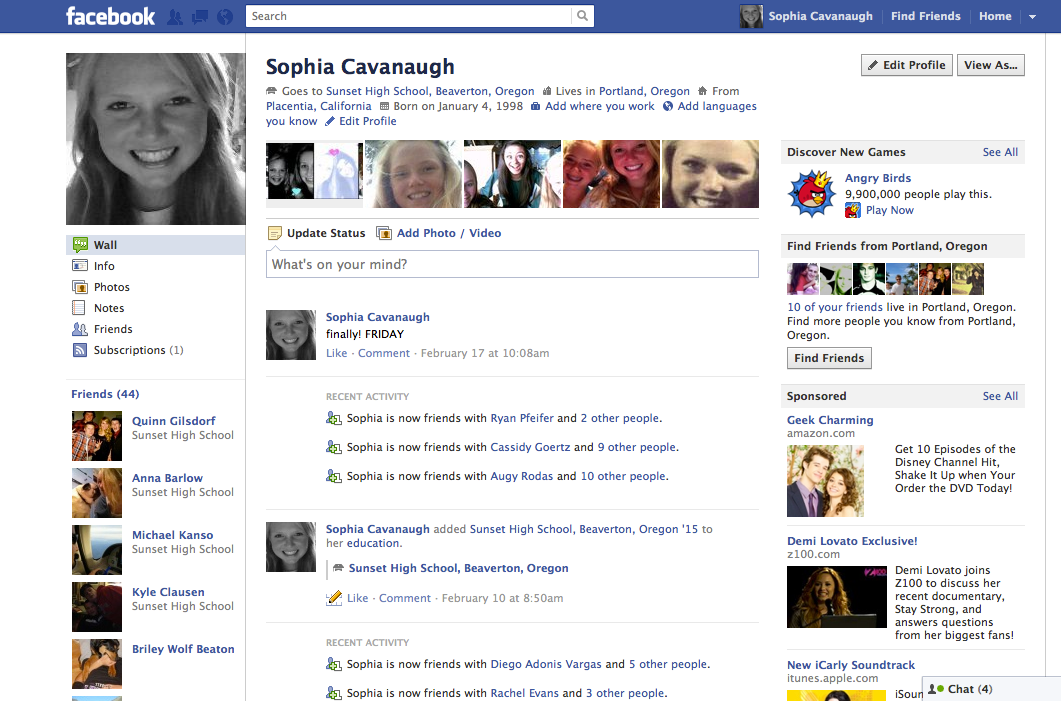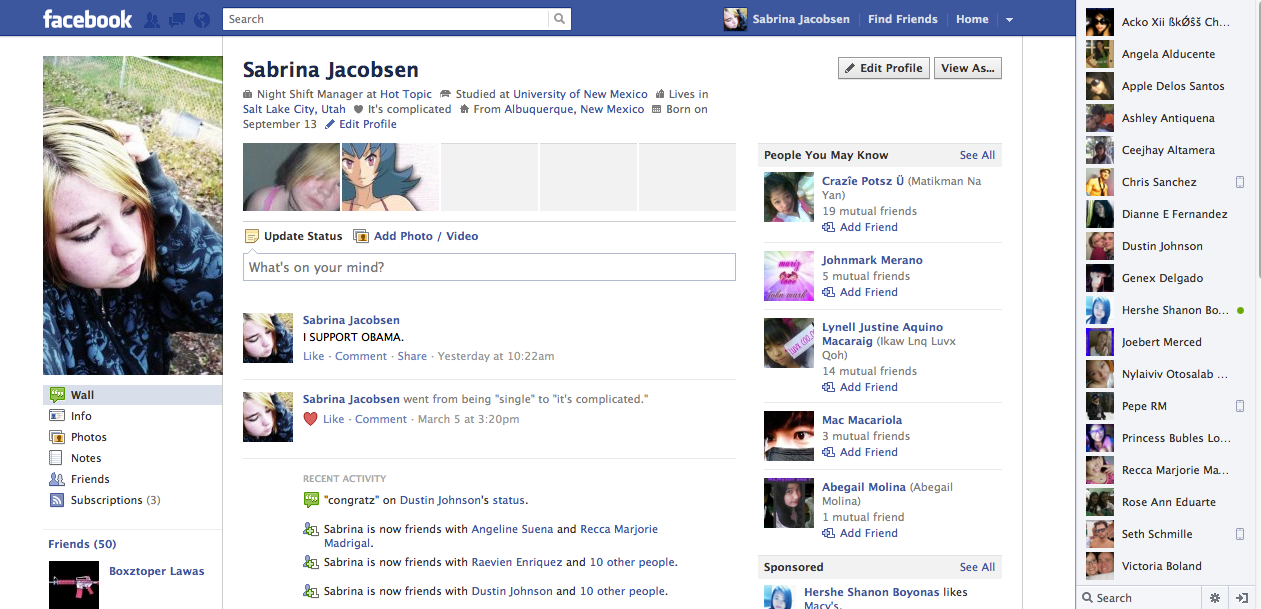The internet has created a place where it is possible to be somebody else without anybody knowing. There is no way to tell if somebody is real or who they say they are. The anonomity of the internet has created many problems such as cyber bullying and internet predators. Social media is a huge part of the Internet. It's a place where you are supposed to be yourself. However, social media is creating many more problems of identity. People place too much trust in social media. They freely put information about themselves, as well as give thousands of people access to that information.
In this project, we created four fake facebooks to show how easy it is to create an online identity and to test how many people are willing to readily accept somebody who is made up as a real person.
Examples of False Identities in the News
The internet has created a place where people can easily create and choose any identity they desire. Some of these fake identities are harmless, but others are not. Fake Internet profiles are becoming more and more abundant and also more dangerous. People create these fake Facebooks to attract a target audience, whether it is children or even other adults.
OUR FAKEBOOKS
SABRINA
Sabrina Jacobsen is a 20 year old Night Shift Manager at Hot Topic.
SOPHIA
For my fake Facebook, I made a fourteen-year-old freshman in high school, Sophia Cavanaugh. She is from Portland, Oregon and goes to Sunset High School in Beaverton.
HENRY
I created Henry Sullivan, a 52 year old married man from Omaha, Nebraska. I said that Henry went University of Nebraska-Lincoln and was a Republican who enjoyed Nirvana, AC/DC, The Beatles, Stephen King and Ender’s Shadow.
RACHEL EVANS
Rachel Evans is an eighteen year old college freshman at the University of Oregon. She is from Tampa, Florida where she attended Riverside Academy. Her favorite artists range from Lady Antebellum to Drake and her favorite movies are The Goonies and Billy Madison.
Restrictions Our Fakebooks Faced
Facebook quickly began restricting Henry and Sabrina from adding friends for certain amounts of time. Then they required us to sign an agreement stating that we would not add friends that we did not know and review Community Standards before we continued using the account. Facebook sent notifications to us reading that it was apparent that we were adding people we did not know. We assume that this is because feature that allows a user to tell Facebook if they actually know someone who has requested them.
CONCLUSION
Exploring identities and the features of fake online identities: What types of people are easy to trust? Is it simple to create a fake identity?
- The FakeBook project showed us that a lot of people will readily accept people they don't know as their friends and give them access to their private information. However, many people do not. Mututal friends play a vital role in the ability to trust a stranger.
Social media is changing what friendship means. It is true that we are “friends” with our best friends on Facebook, but we’re also friends with aquaintances, friends of friends, people who have met once, people we have never met at all...and in some cases, people who don't exist.


